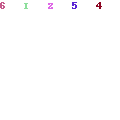Applying for an Indian visa is the first step of traveling to India. The Indian government requires that foreign nationals and Canadian citizens apply for a INDIAN VISA FOR CANADIAN CITIZENS before they can enter the country. It is also necessary for minors to apply for a visa to enter the country. There are several types of visas available. There is the standard processing time, the rush processing time for travelers with a lot of time to spare, and the super rush time for travelers who need their visa quickly. The price varies depending on the type of visa and the processing time.
eVisa
The eVisa application process in India is 100% online and takes less than a few minutes. Once approved, the eVisa will be sent to you via email. The visa will then be stamped on your passport and will be good for 30 days. The entire process is recorded in a central computer system maintained by the Government of India. You can access your eVisa at any airport in the world, and you do not need to visit an Indian embassy or consulate.
To apply for an eVisa, you will need specific documents, which must be in English. The application will take you 10 to 15 minutes to complete. You will need your passport and a photo of yourself. You should make sure your photo is taken in front of a plain wall, and that it is not too dark or too light. Also, make sure that you are standing up straight and have your eyes open. Depending on your needs, you may need to submit other documents. These should be scanned copies and preferably in color, if possible.
If you want to apply for an eVisa, you should apply at least four days in advance of your trip. For most countries, this means you should get your application processed at least four days ahead of time. Then, you will need to upload a front-facing photo and a photo page of your passport with your personal information. You will also need to upload one other document, depending on the type of eVisa you need. Make sure your photograph is clear and legible.
Self declaration
The Self Declaration form for entry into India is a document that all travelers need to fill out. While it does not replace a visa, it is important for travelers to fill out the form to help the local authorities control the spread of the coronavirus. It is easy to complete online and can be received in your email inbox within a few days. You will also need to scan a valid passport photo.
In order to enter India, Canadian citizens must complete and submit a Self Declaration form. This is a simple procedure and must be done before traveling. The form must be filled out online and presented at all international airports. Travelers must also submit a Health Declaration form prior to departure. Those who don’t fill out the form may not be allowed to board their flight.
Those traveling from ‘at risk’ countries must also fill out a Self Declaration form. If they fail to do so, they will face criminal prosecution. ‘At Risk’ countries include all of Europe, South Africa, Botswana, Zimbabwe, and China. In addition to filling out the form, travelers will need to present a certified vaccination certificate. The certification must be valid at least six months from the date of entry.
Application process
When traveling to India, it’s important to know the application process for your passport. In some cases, it’s necessary to get a visa before you enter the country. Other countries require a different process, and you may have to apply for a re-entry permit. In these cases, you will need to visit the Indian Consulate.
First, you must prepare all of the required documents. Then, you will need to submit your application at least 4 days before you leave. Once approved, you will receive an eVisa, which you can print out and keep with you at all times.
When you submit your application, you will be required to provide a valid photo. The photo must match the one you uploaded with the visa request. If the photos are not identical, your application will be rejected or delayed.
Fees
If you are a Canadian citizen and intend to visit India, you can apply for an eVisa online. This type of visa does not require a stamp in your passport and is valid for up to two years. You can use the eVisa to enter the country through one of the 28 specified airports. These INDIAN VISA AIRPORTS FOR ENTRY include Bangalore, Dehli, Goa, Chennai, and Hyderabad. The application process for an eVisa is much simpler and faster than applying for a traditional visa. Besides, experts will ensure that your documents are up to standards.
If you are a Canadian citizen and plan to visit India, it is essential to apply for an eVisa before leaving Canada. Currently, there are several types of eVisas available for Canadian citizens. You can apply for a business visa, tourist visa, or medical visa. You can check your eligibility online on the Indian government website. In addition, you can check your travel status with the Indian government’s online travel guide.
To apply for an eVisa, you should make sure you have two empty pages in your passport. You must also remember that the visa fee is non-refundable. In addition, you must make the payment three days before arriving in India.













